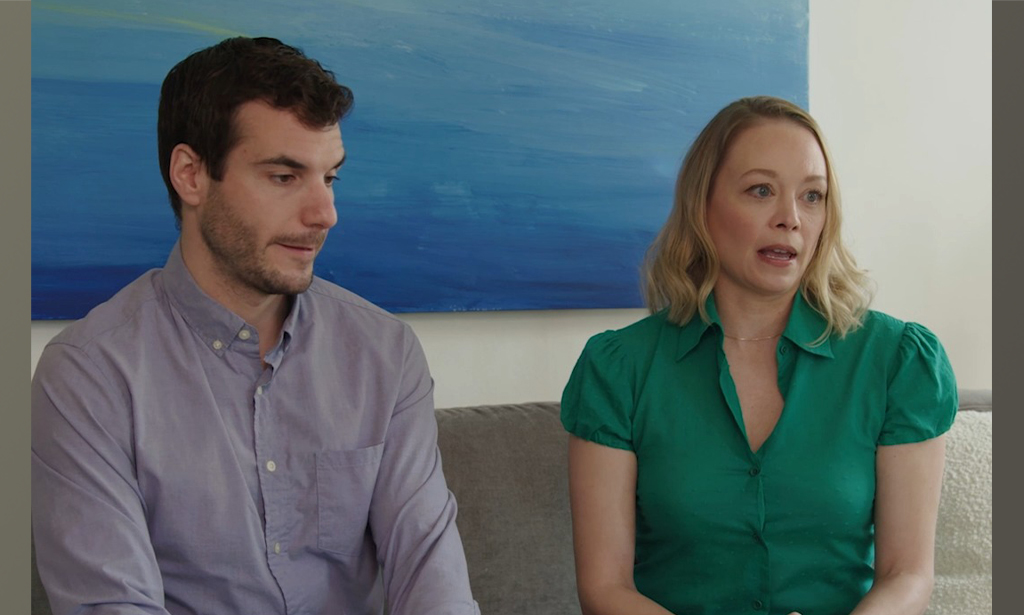DFS
Strategies for Success in Fantasy Golf Leagues
Dominate your fantasy golf league with these expert strategies, from analyzing course fit to taking calculated risks.

Fantasy golf is more than just picking your favorite players—it’s a game of strategy, analysis, and the occasional calculated risk. If you’re ready to step up your game and dominate your league, here are some essential strategies that will have you climbing the leaderboard in no time.
1. Know Your League’s Scoring Rules
Every fantasy golf platform has its quirks. Some leagues prioritize birdies and eagles, while others emphasize consistency with pars. Understanding how points are allocated can guide your player selection and lineup decisions.
2. Analyze Course Fit
Not all players perform equally on every course. Some thrive on tight, strategic layouts, while others dominate on long, open tracks. Research each tournament’s course to see which stats—like driving accuracy, GIR (greens in regulation), or putting—are most relevant.
3. Diversify Your Lineup
While it’s tempting to stack your team with stars, a balanced lineup often performs better. Pair reliable players with under-the-radar picks who have the potential to outperform their rankings. A few dark horse selections could make all the difference.
4. Stay Informed on Player Trends
Golf is as much a mental game as it is physical, and even top players go through slumps. Monitor recent results, injury updates, and even off-course factors that might influence performance. A little research can go a long way in avoiding risky picks.
5. Leverage Fantasy Tools
Use projections, expert insights, and ownership percentages to your advantage. Platforms like Fantasy National Golf Club or PGA Tour stats pages offer detailed analysis that can help you make smarter decisions.
6. Capitalize on Tee Times and Weather
Weather conditions can play a huge role in golf performance. Wind, rain, and even time of day can create distinct advantages or challenges. Prioritize players with favorable tee times when the weather is expected to shift during the day.
7. Don’t Be Afraid to Take Risks
To win big, sometimes you need to take chances. If you’re behind in the standings, consider high-upside players who might not be heavily owned by others in your league. Riskier picks can give you the edge needed to climb the leaderboard.
8. Focus on Momentum
Golfers often carry momentum from one tournament to the next. Look for players coming off strong finishes, even if they’re not household names. Momentum can be a powerful tool in fantasy golf.
Final Drive
Winning a fantasy golf league requires a mix of knowledge, strategy, and a bit of luck. By understanding the nuances of scoring, player fit, and conditions, you can make smarter decisions and position yourself for success. So get out there, pick wisely, and enjoy the thrill of competing in your league. Victory awaits!
Blog
Bets & Babes: Betting on Birdies

In this latest episode of Bets and Babes join me and my special guest Robert from the World Series of Golf as we tee up a whole new way to think about betting on the green.
We break down golf betting basics, share hilarious stories and talk about how to bet in a way that might resonate with us ladies.
Whether you’re a total newbie or just curious how to make golf Sundays more exciting, this episode delivers fun, flirty, and smart tips to get you in the game. 🎧⛳💸
Click below to listen to the entire episode and leave your comments and suggestions for future episodes.
Blog
Make watching golf more interesting.
Does the idea of sports betting intimidate you? Stick with me and learn how to make watching sports with your partner more engaging and fun.

Hey there, ClickItGolf fam!
I’m the Sports Betting Babe, and I’m here to shake up your Sundays and sprinkle a little extra thrill on your tee times. I know most of the guys on here already love golf, but this one’s for the ladies, especially those of you who’ve been watching golf with your boyfriend or hubby and secretly thinking, “Wait, can I actually bet on this stuff?”
The answer is yes, you absolutely can and you should.
I’m going to make golf betting super easy to understand, a little sexy, and a whole lot of fun. You don’t need to be a pro or know who won the Ryder Cup in 1999. You just need to know how to make smart, simple bets and enjoy the ride.
Let’s Start with the Basics: How to Bet on Golf
Betting on golf is like picking your favorite brunch spot. You check the vibe, pick someone reliable, and hope it all works out. Here are the easiest ways to get started:
1. Pick the Winner (Outright)
This one’s like calling your shot. You’re betting on who will win the whole tournament. Odds are listed next to each golfer. For example, +1200 means a $10 bet would win you $120. Favorites are usually listed around +800 to +1400 and less favorites, or long shots, are usually +5000 and up. Big swings, big rewards.
2. Top 5 / Top 10 Finish
If you’re not ready to go all-in, no worries. These bets are like hedging your weekend plans – low commitment, still fun. Bet on a golfer to finish strong (in the top 5 or 10) instead of winning outright. It’s a safer bet, but still gives you a reason to cheer all weekend long.
3. Matchups
This one’s juicy. Sportsbooks will pit two golfers against each other, and you just pick which one finishes higher.
For example, if you see a matchup like Viktor Hovland vs. Tony Finau, and you think Viktor is trending hotter, bet on him to beat Tony. Even if neither of them wins, if Viktor finishes 8th and Tony finishes 9th, you win. It’s a simpler way to stay engaged without needing to track the entire tournament field because even if they’re not winning the tournament, you’re winning your bet. It’s low drama, high payoff.
Bonus? It’s a perfect way to gain low-key bragging rights during Sunday brunch.
4. Live Bets
Tournaments stretch over four days. That means the odds shift, players rise and fall, and you can jump in with bets mid-tourney. It’s like shopping sales in real time—see who’s hot in real time and grab the value before it’s gone.
Why Women Should Love Golf Betting
Golf is the perfect sport to ease into betting. It’s slow enough to follow, exciting enough to matter, and gives you tons of chances to win over the weekend. Plus, nothing gets a guy’s attention like a woman who casually drops, “I’ve got Rickie to finish top 10. Let’s go.”
You don’t need to know every stat or swing path. You just need to be curious, confident, and down to learn. The goal? Make betting approachable for women and show the guys we can hold our own.
Why I Love ClickItGolf
ClickItGolf is all about making golf more fun and accessible and I’m all about the same. Whether you’re here for gear deals, course perks, or just that perfect swing tip, this site is your clubhouse. Adding a little betting action into the mix? That’s just next-level fun.
So, ladies go grab your iced coffee, fire up the PGA app, and get ready to make golf weekends a lot more interesting.
Follow me here at ClickItGolf or on Instagram @sportsbettingbabe_official and let’s turn birdies into bankroll.
See you on the green (and in the winner’s circle).
Blog
Meet the Sports Betting Babe: ClickitGolf’s Newest Voice Bringing Style, Smarts, and a Whole Lot of Fun to the Game

Hey ClickitGolf family,
I’m thrilled to introduce someone who’s about to shake up your sports weekends in the best way possible.
She’s smart, stylish, funny, and knows her way around a betting slip—please welcome The Sports Betting Babe to the ClickitGolf crew.
Now before you assume this is just another picks column or dry rundown of odds, let me stop you right there. The Sports Betting Babe is anything but ordinary. She’s not here to act like a Vegas oddsmaker or overwhelm you with stats. She’s here to make sports betting fun, flirty, and totally approachable—especially for the ladies.
So who is she?
She’s the kind of woman who can turn heads at a cocktail party in heels one night, then toss on a tee and jeans the next morning to watch a game on the couch with wings and a cold beer. She’s sharp, relatable, and yes she actually loves sports. Not the fake kind of “I’m just here for the vibes” love, but the “I scream at the TV when my parlay falls apart in the 4th quarter” kind of love.
She lives for big Sunday slates, nail-biter golf finishes, buzzer-beaters, and 9th-inning home runs.
But here’s the best part, her mission is to bring more women into the sports conversation, and she’s doing it through betting.
Betting… but make it fun and responsible
The Sports Betting Babe isn’t trying to be your gambling guru. She’s not claiming to have inside info on who’s winning the Masters or who’s hitting a triple-double tonight. What she is doing is giving you the tools, confidence, and attitude to get in the game and have a damn good time doing it.
She believes sports betting can be empowering. It’s a way to connect, to learn, and yes, to make Sunday brunch with your partner a little more competitive. She’s all about responsible fun, setting limits, understanding your bets, and never taking it too seriously.
More Than Just Golf

Yes, she’ll be writing about golf betting often (because we are ClickitGolf after all), but don’t be surprised when she drops takes on NFL Sundays, March Madness upsets, NHL playoff runs, and MLB long shots. She’s a cornucopia of sports knowledge, and she’s bringing it all to the table served with a smile and a wink.
Her First Article Drops Tomorrow
Her debut piece hits the site tomorrow:
👉 “Ladies, Let’s Bet on Golf—Your Intro from the Sports Betting Babe”
It’s part pep talk, part how-to, and all personality. Whether you’ve never placed a bet in your life or you’ve been riding parlays for years, this one’s for you.
Follow Her Journey
Want more from The Sports Betting Babe?
You can follow her on Instagram at @sportsbettingbabe_official for daily takes, behind-the-scenes fun, and maybe the occasional outfit inspo for your next girls’ night and game day.
We couldn’t be more excited to welcome her to the team. Get ready for bold opinions, plenty of laughs, and a whole new way to fall in love with sports.
Stay tuned,
Bobby
#ClickItGolf #SportsBettingBabe #GolfBetting #SportsBettingForWomen #SmartIsSexy #GameDayFun #ResponsibleGaming
-

 Product Review6 years ago
Product Review6 years agoThe Perfect Practice Putting Mat Review by Jason Tenzer
-

 Blog4 years ago
Blog4 years agoLoophole Rule Offers PGA Tour Pros a Mulligan
-

 Blog4 years ago
Blog4 years ago2021 Buyer’s Guide: The Top 10 Value Golf Balls For Distance & Feel
-

 Blog4 years ago
Blog4 years agoGolf Marriage Counselor
-

 Blog6 years ago
Blog6 years ago9 Biggest Chokes Of The Past Decade
-

 Product Review6 years ago
Product Review6 years agoTHE ADJUSTABLE IRONS: WALKING STICKS GOLF CLUBS
-

 Blog4 years ago
Blog4 years agoWhat Your Golf Clubs Say About You
-

 Equipment6 years ago
Equipment6 years agoOHK Sports Interview by Jason Tenzer





























